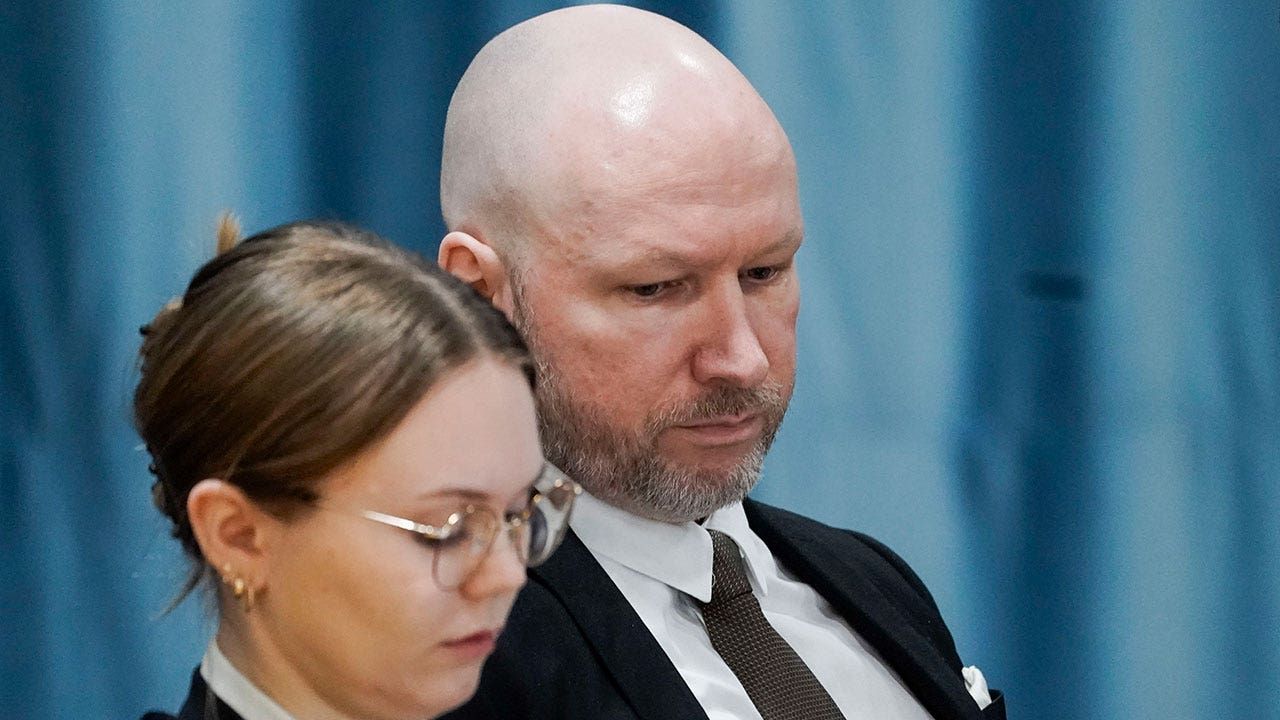- Anders Behring Breivik, a Norwegian right-wing extremist who killed 77 people in 2011, is suing the state for the second time, accusing the Justice Ministry of violating his human rights.
- Breivik claims that the isolation he has experienced since 2012 constitutes inhuman punishment under the European Convention on Human Rights.
- He advocates for an easing of restrictions and greater contact with other inmates.
Norwegian far-right Anders Behring Breivik, who killed 77 people in a bombing and shooting in 2011, launched his second attempt to sue the state on Monday, accusing the Ministry of Justice of violating his human rights.
Breivik, who changed his name to Fjotolf Hansen, claims that the isolation he has been subjected to since he began serving his prison sentence in 2012 amounts to inhuman punishment under the European Convention on Human Rights. He failed in a similar attempt in 2016 and 2017, when his appeal was ultimately rejected by the European Court of Justice.
His lawyer, Øystein Storrvik, told The Associated Press that Breivik’s mental health has been affected by the additional years of solitary confinement since then, leaving him “suicidal” and dependent on antidepressants. Storrvik said he would advocate for an easing of restrictions and greater contact with other inmates, and that he believed 12 and a half years of solitary confinement was “unique” in recent European judicial history.
NORWAY MASS KILLER SEEKS EARLY RELEASE AND TEST THE LIMITS OF THE LENTIVE JUSTICE SYSTEM
Storrvik told the court on Monday that Breivik had hoped to have some kind of “human relations” when he was moved from Skien prison to a spacious two-story complex at Ringerike prison near Oslo in 2022, but that the cells They had been “turned into an isolation room.”
Anders Behring Breivik and lawyer Marte Lindholm sit as the Oslo district court conducts their case on January 8, 2024. Breivik, who killed 77 people in an anti-Islam shooting and bomb attack in 2011, appeared in court on Monday in an attempt to sue the Norwegian state for violating his human rights. (Cornelius Poppe/NTB Scanpix via AP)
In 2012, Breivik was convicted of mass murder and terrorism for a bomb attack that killed eight people in the government block of Oslo and a shooting massacre on the island of Utøya, where he shot dead 69 people in a camp. on vacation for young center-left activists. Party work.
Breivik, who described himself during the trial as an anti-Muslim crusader, pleaded not guilty and claimed he was acting in self-defense to protect Norway from multiculturalism.
He received the harshest sentence imposed in Norway at the time: prison for 21 years, with a provision to hold him indefinitely if he is still considered dangerous.
NORWAY MOURNS 77 DEAD A DECADE AFTER THE EXTREMIST ATTACK
“It is no exaggeration to say that if the court does not stand firm, he will be sentenced to life in prison and will never be able to associate with other people,” Storrvik told the court on Monday, according to the Norwegian news agency. BNA.
Breivik entered the makeshift courtroom in the Ringerike prison gym dressed in a dark suit and tie, flanked by Storrvik. He did not give the Nazi salute as he had done in court appearances in the past.
The government rejects Breivik’s claim that his prison conditions violate human rights.
According to government lawyer Andreas Hjetland, who represents the Ministry of Justice in the case, the restrictions to which Breivik is subject have been relaxed, but the conditions are necessary for security reasons.
So far, Breivik has been unreceptive to rehabilitation work, according to a written statement by Hjetland to the court before the trial, which ends Friday.












